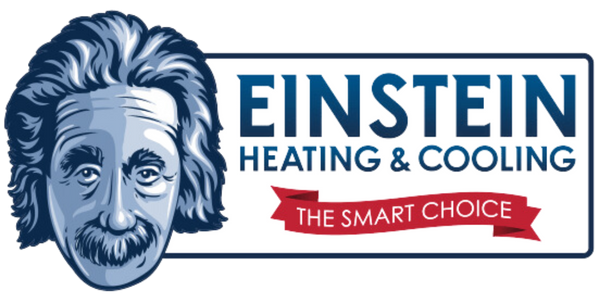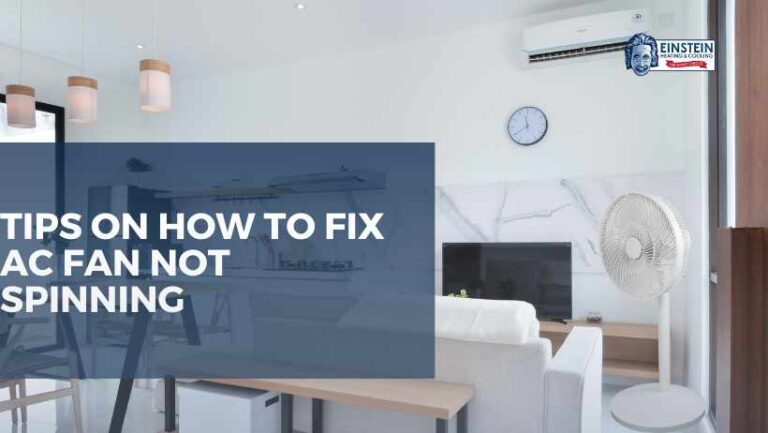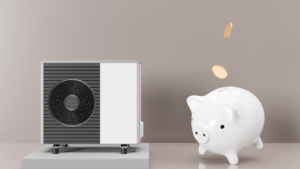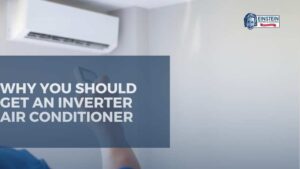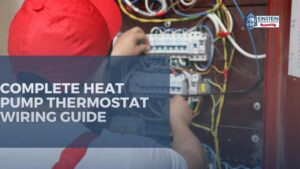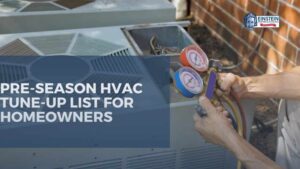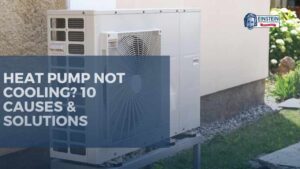Is there anything more frustrating than turning on your air conditioner on a scorching summer day, only to realize that you’re searching for tips on “AC fan not spinning”? Your cool oasis is quickly turning into a warm disappointment. Before you start panicking, let’s delve into the possible reasons behind this common issue and explore some solutions.
1. Power Supply Issues
Electrical Disconnect
Your AC unit may not be getting the power it needs to function properly. Check the electrical disconnect switch, usually located near the outdoor unit. Ensure that it is in the ON position. If it’s turned off, flipping the switch back on might be the solution.
Tripped Circuit Breaker
A tripped circuit breaker could be the culprit. Head to your electrical panel and look for the circuit labeled for your AC unit. If it’s in the OFF position, reset it. If the breaker keeps tripping, it could indicate a larger electrical issue that requires an expert HVAC technician.
2. Capacitor Troubles
Faulty Start Capacitor
The start capacitor is responsible for initiating the motor’s rotation. A malfunctioning start capacitor could prevent the AC fan from spinning. If you’re comfortable doing so, inspect the capacitor for visible signs of damage, such as bulging or leaking. If you notice any issues, it’s time to replace the capacitor.
Run Capacitor Issues
The run capacitor helps the motor maintain a consistent speed. Like the start capacitor, it can fail over time. If the run capacitor is faulty, the AC fan may not spin at the proper speed or may not spin at all. A professional technician can test and replace the run capacitor if necessary.
3. Motor Malfunctions
Burned-out Motor
An overheated or burned-out motor could be the reason behind your AC fan’s inertia. If the motor has burned out, you may notice a distinct burning smell. In this case, it’s best to call a professional HVAC technician to assess the situation and replace the motor if needed.
Lack of Lubrication
Motors need proper lubrication to function smoothly. If your AC fan motor lacks lubrication, it can lead to increased friction and overheating. Regular maintenance, including lubricating the motor, can help prevent this issue. If the damage is already done, a technician can evaluate and repair the motor.
4. Fan Blade Obstructions
Debris Buildup
Sometimes, the solution is as simple as removing debris. Inspect the fan blades for any accumulated dirt, leaves, or other debris that might be hindering movement. Gently clean the blades and surrounding area to ensure proper airflow and rotation.
Bent Blades
Bent or damaged blades can disrupt the balance and rotation of the fan leading to ac fan not spinning. Carefully inspect each blade for any signs of bending. If you notice any irregularities, use a gentle touch to straighten them out. In severe cases, replacement may be necessary.
5. Thermostat Issues
Incorrect Thermostat Settings
Believe it or not, sometimes the issue of the AC fan not spinning lies with the thermostat settings. Ensure that the thermostat is set to the desired temperature and mode (cooling). If the thermostat is malfunctioning, consider replacing it or consulting a professional to diagnose and fix the problem.
Wiring Problems
Faulty or damaged wiring can disrupt communication between the thermostat and the AC unit. Examine the wiring for signs of wear, corrosion, or loose connections. If you’re not comfortable working with electrical components, it’s best to leave this task to a qualified technician.
6. Belt-Related Concerns
Loose or Broken Belt
In older AC units, a belt connects the motor and the fan. Over time, the belt can become loose or break, preventing the fan from spinning. If you notice any issues with the belt, such as excessive slack or visible damage, it’s advisable to replace it promptly.
Misaligned Belt
A misaligned belt can also impede the fan’s movement. Check if the belt is properly aligned on the pulleys. Adjust it if necessary, ensuring it sits snugly without any twists or turns.
7. Temperature Sensor Problems
Sensor Malfunction
Modern AC units often have temperature sensors to regulate performance. A malfunctioning temperature sensor can disrupt the unit’s operation. Consult your unit’s manual to locate the sensor and check for any visible issues. If you can’t identify the problem, a professional technician can assist in sensor replacement.
Sensor Calibration
In some cases, a sensor may not be malfunctioning but may require recalibration. If you’re comfortable doing so, consult your unit’s manual for instructions on recalibrating the temperature sensor. If the issue persists, seek professional help.
AC Maintenance Tips
I. Regular Maintenance
Routine maintenance is the key to preventing major HVAC issues. Regular check-ups and small fixes can extend the lifespan of your system and keep it running efficiently. Here are some essential maintenance tasks to consider:
1. Air Filter Replacement
A clogged or dirty air filter can hinder the airflow and strain your HVAC system. Replace your air filters every 1-3 months to ensure optimal performance. This simple step not only improves air quality but also prevents potential breakdowns.
2. Cleaning the Coils
Over time, the evaporator and condenser coils can accumulate dirt, reducing the system’s ability to absorb and release heat. Regular cleaning of coils prevents this buildup and enhances overall efficiency.
3. Check Refrigerant Levels
A refrigerant leak or low levels can lead to inefficient cooling. Regularly check and maintain proper refrigerant levels to ensure your HVAC system operates at its best.
II. Thermostat Issues & Solutions
A malfunctioning thermostat can cause temperature irregularities and lead to discomfort. Addressing thermostat issues promptly can save you from unnecessary HVAC repair expenses.
1. Calibration Check
If your thermostat is not accurately reading the temperature, it could lead to erratic cooling or heating. Calibrate your thermostat to ensure it reflects the actual indoor temperature.
2. Battery Replacement
A seemingly simple problem like dead batteries can disrupt your HVAC system’s functioning. Regularly replace thermostat batteries to avoid unexpected breakdowns.
3. Upgrade to a Programmable Thermostat
Consider upgrading to a programmable thermostat for better control over your indoor climate. This modern solution allows you to set temperature schedules, optimize energy usage and reduce wear on your HVAC system.
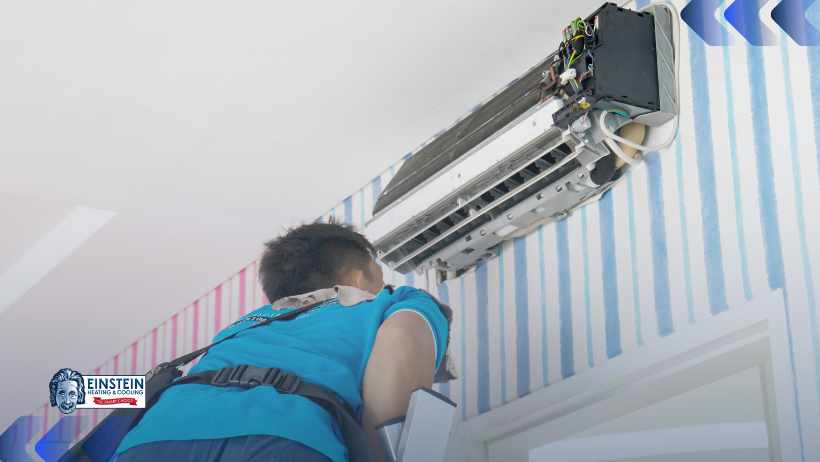
III. Electrical Component Evaluation
HVAC systems rely on various electrical components to function efficiently. Issues with these components can lead to system failures and discomfort in your living space.
1. Inspect Wiring
Faulty or damaged wiring can disrupt the flow of electricity, affecting your HVAC system’s performance. Regularly inspect wiring for signs of wear, and replace or repair as needed.
2. Check Capacitors
Capacitors store electrical energy, assisting in the startup of the HVAC system. A malfunctioning capacitor can lead to issues like the system not turning on or irregular cooling. Regular checks can identify capacitor problems before they escalate.
3. Address Electrical Connections
Loose or corroded electrical connections can hinder the efficiency of your HVAC system. Ensure all connections are secure and clean to prevent electrical issues.
IV. Maximizing Airflow
Proper airflow is crucial for an HVAC system to effectively heat or cool your home. Ductwork issues can significantly impact airflow, resulting in uneven temperatures and increased energy consumption.
1. Duct Cleaning
Accumulated dust, debris, and mold in the ducts can obstruct airflow and degrade indoor air quality. Periodic duct cleaning ensures a clear passage for air to flow, optimizing your air conditioner’s performance.
2. Sealing Leaks
Leaky ducts contribute to energy wastage and inefficient temperature control. Sealing these leaks with appropriate materials prevents air loss and ensures that conditioned air reaches its intended destination.
3. Proper Insulation
Inadequate insulation can lead to heat loss in the winter and heat gain in the summer. Ensure your home is adequately insulated to reduce the workload on your HVAC system and maintain a comfortable indoor environment.
V. Outdoor Unit Care for AC Fan Not Spinning
The outdoor unit of your HVAC system is exposed to the elements and requires regular attention to maintain peak performance. Neglecting this crucial component can result in breakdowns and expensive repairs.
1. Clear Debris Around the Outdoor Unit
Leaves, branches, and other debris can accumulate around the outdoor unit, obstructing airflow. Regularly clean the area to ensure proper ventilation and prevent strain on the air conditioner.
2. Trim Vegetation Nearby
Overgrown plants and bushes can obstruct the airflow around the outdoor unit. Trim vegetation to maintain a clear space, allowing the system to function efficiently.
3. Protect the Unit During Extreme Weather
Harsh weather conditions, such as heavy storms or extreme heat, can impact the outdoor unit. Consider installing a protective cover or shelter to shield the unit from the elements, preventing potential damage.
VI. Professional Inspection
While some HVAC issues can be addressed through DIY solutions, there are times when professional intervention becomes necessary. Regular inspections by HVAC experts can catch potential problems before they escalate.
1. Scheduled Professional Maintenance
Engage HVAC professionals for routine inspections and maintenance. These experts can identify and address issues that may not be apparent to the untrained eye, ensuring the longevity and efficiency of your system.
2. Timely Repairs
If you notice any irregularities in your HVAC system’s performance, such as strange noises or uneven heating/cooling, consult with professionals promptly. Timely repairs can prevent minor issues from turning into major problems.
3. Consider Upgrades
As HVAC technology advances, upgrading your system can enhance energy efficiency and performance. Consult with professionals to explore options that align with your needs and budget.
Conclusion
In conclusion, discovering that your AC fan is not spinning can be disheartening, especially during the sweltering heat of summer. However, armed with this troubleshooting guide, you can explore potential causes and solutions. Keep in mind that while some issues can be resolved through DIY methods, others may require the expertise of a professional HVAC technician from Einstein Heating and Cooling. Regular maintenance and timely repairs are key to keeping your AC unit in top-notch condition, ensuring a cool and comfortable environment for your home or office.
